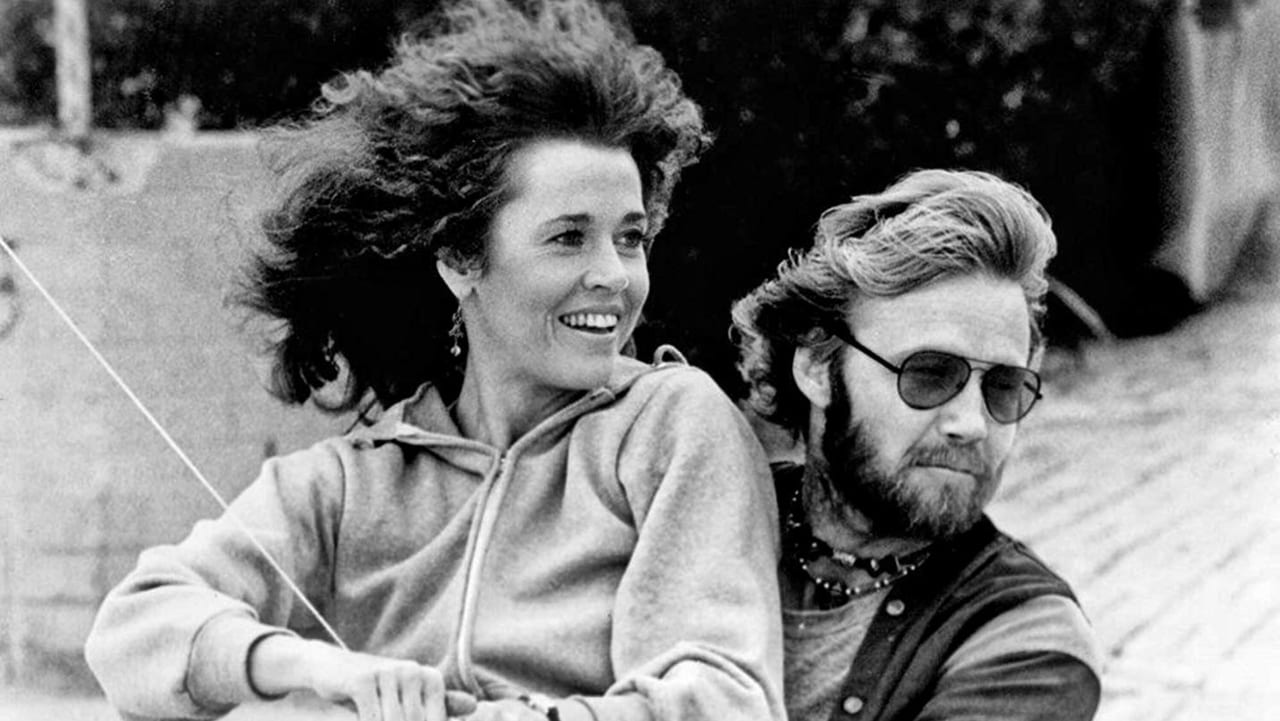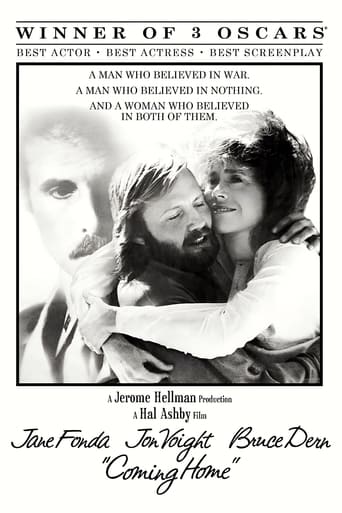

I watched this again after some 40 years. I was glad to see it aired. Being a Vietnam Vet, I like anything that focuses attention on the War, lest the suffering be forgotten. I read some of the reviews here. The one that says there's never a reason to go to war is nice. Only if we hadn't fought and prevailed in WWII they'd likely be writing in German or Japanese, or more likely, not writing at all.LOVED the music. Interesting that I think mostly all the songs were played in their entirety. And to hear two Beatles songs - wow - what did that cost?A very important and moving film, with a message not to be forgotten.
... View MoreWar films I like okay, and too I'm a fan of anti-war pictures and with this 1978 film from the outspoken and to the point director Hal Ashby I must say that "Coming Home" is a strong drama that shows how war can affect the lives of many involved and those involved learn it probably wasn't for the best. Certainly many might say that this was one film that was very outspoken that displays the post and ever lasting impact of the Vietnam War.As anyone who remembers the Vietnam War and it's after period of the late 1970's most will agree that it was one trying period in our nation's history. The story is pretty plain and simple Marine Captain Bob Hyde(the very strong Bruce Dern in probably his best performance ever)leaves for Vietnam left behind is his wife Sally(Jane Fonda)who finally volunteers at a local hospital. At this veterans hospital she meets Luke Martin(Jon Voight)who's a smart, likable yet desperate man who while as a former sergeant suffered a war injury that left him a paraplegic. Now battered with rage and filled with anger and never ending frustration, slowly yet surely Luke finds comfort and new hope in the arms of Sally as it even leads to passion and intimate romance.This whole new change for both transforms the film and all those involved into a new direction, as the feeling of life and love blend full circle with the horrors and impact of war. To intersect and complicate matters when Bob finally returns home the trio all now are faced with the brutal impact of war, life, and change. In the end a different direction of thought and life is taken for all. Clearly this film displayed a loud and clear message about the impact of war and that military service is not all what it seems as the impact and damage done to one's life is forever as when one watches they should consider and take to heart the message of the film proving that war and military life is brutal and ever lasting. "Coming Home" is one outspoken truth revealing drama not to be missed.
... View MoreLuke Martin (Jon Voight) returns as a wheelchair bound cripple from Vietnam. Capt. Bob Hyde (Bruce Dern) is sent over leaving behind his wife Sally (Jane Fonda). She's lonely and volunteers at a local VA hospital. Luke is angry but eventually they find comfort in each other. He is released and starts protesting the war. They begin an affair which is further complicated when her husband returns also suffering from his own war experiences.This has the documentary meandering style of the 70s from Hal Ashby. It's a bit prodding. I wish the movie concentrated on either Luke or Sally. It's a lot of personal struggle for both characters. Jon Voight is terrific but Jane Fonda seems a bit too old for the part. She's around 40 at the time. It seems she's playing a naive young person at times. I would rather she play a mother in the movie. It would add to her conflict.
... View MoreThis film looks at the effect of the Vietnam war on the home front. The script is preachy and cliché-ridden and Ashby's approach is heavy handed. Fonda is fine as the woman torn between husband Dern and lover Voight. The latter two actors don't fare as well. Initially, Voight overdoes the bitter war vet routine. Then his abrupt transformation from obnoxious and self-centered to sensitive and thoughtful is not believable. Dern is surprisingly normal initially but eventually turns into the weirdo that had been the trademark of most of his career at the time. The movie feels stale and uninspired, as reflected by the lazy use of 1960s songs on the soundtrack.
... View More